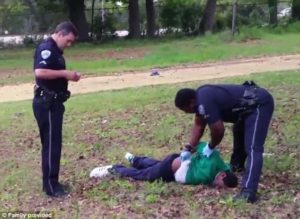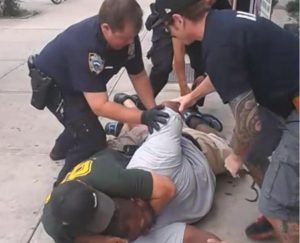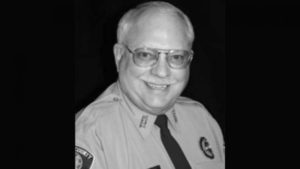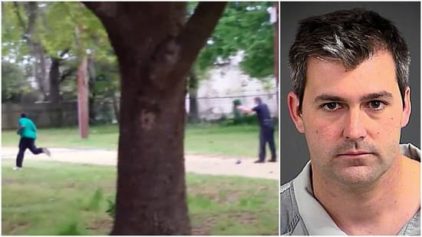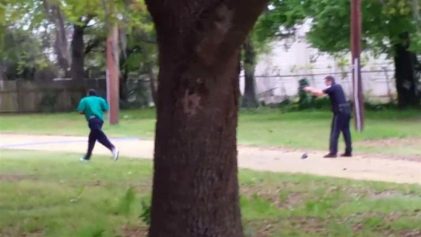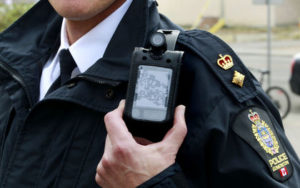
They have proven to be a flawed, lackluster solution with a high rate of failure when it comes to pushing for charges against officers.
The disconcerting cell phone footage of Walter Scott’s death has helped convince a vast majority of the public that police body cameras would be quite a worthy investment.
A poll conducted by YouGov/Economist revealed that nearly 90 percent of Americans are now in support of officers wearing body cameras, with 56 percent of them being strongly in favor of the idea.
Only 8 percent of Americans were opposed to the use of body cameras.
Regardless of race or political affiliation the support for body cameras has seen a sharp increase in recent months.
Ever since December, more than 90 percent of Democrats and nearly 85 percent of Republicans have been in favor of police body cameras.
Meanwhile, about 84 percent of Black people are in favor of the idea while 89 percent of white people support them.
These statistics are not to be misconstrued as a growing desire for support of the Black community, however.
One reason behind the growing support for body cameras also doubles as evidence of why these cameras should not be hailed as a definitive solution to police brutality and implicit bias in law enforcement.
Some of the survey participants revealed that they want police body cameras so that more officers can be vindicated after accusations of police brutality are hurled their way.
Without a doubt, innocent police officers deserve to have a way to ensure they are not held responsible for brutal attacks that they didn’t commit, but deciding whether or not an officer’s actions qualify as excessive force leads the public into a bleak gray area.
In a sense, police body camera footage may become nothing more than a frustrating inkblot test at the center of more controversy and deteriorating race relations.
The body camera footage will only ensure that the public sees the same image. It will not promise, however, that they will agree on how to perceive those images.
Take the death of Eric Garner, for example.
While the Black community was outraged after watching New York officer Daniel Pantaleo put the Staten Island father in a fatal chokehold, others insisted that Pantaleo had every right to do so and that the officers were doing what they had to do to gain control of the situation.
Then there is the dash cam footage of a South Carolina officer firing at a Black man for reaching into his car to get his license.
While the public saw an innocent Black man getting shot for no reason, officers insisted they saw a dangerous man making a suspicious attempt to grab a weapon.
Of course, these would all be things to consider if the footage is even released to the public or if the officer doesn’t cut off the camera and claim it malfunctioned.
Earlier this year dash cam footage surfaced of a group of officers attacking a Black man during a traffic stop before a female officer warns her colleagues to pause until she cuts off her dash cam.
Shortly afterwards, her dash cam goes black and images of a bruised and bloodied suspect hit the web.
These types of incidents add to an expanding list of reminders that police body cameras won’t solve everything, but there is evidence that they could at least be a step in the right direction.
After all, police body camera footage is what led to Tulsa, Oklahoma, deputy Robert Bates being charged for the death of an unarmed Black man that he shot while claiming he meant to reach for his taser.
But some believe the benefits of body cameras can go well beyond accountability.
Criminal defense attorney Mark O’Mara, who represented George Zimmerman in his explosive trial after killing Trayvon Martin, explained that the presence of police body cameras could also help prevent more fatal shootings as the nation continues to ponder how to address the real, underlying issues behind these tragedies.
“Throughout the entire encounter with Scott, it’s clear Slager had no idea someone was filming him,” O’Mara wrote in an op-ed for CNN. “Had he known there would be video of his every move, would he have drawn his weapon on a fleeing man? Would he have fired? Eight times? Would he have misrepresented the counter on his police report…Studies have shown that both cops and people in the community act better when they know they are on camera.”
Even O’Mara had to admit, however, that the body cameras will be no saving grace for the Black community.
“I will admit that body cameras are only an interim solution,” he continued. “They only help compensate for the real underlying problem, which is this: There is a bias against black men that has infiltrated the criminal justice system, and we are seeing it in the disproportionate shooting of black men.”
That problem is one that certainly can’t be solved with added police surveillance.
